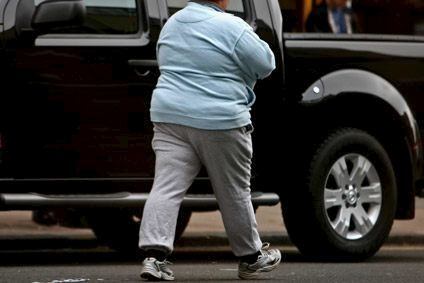
Europe is in line to see an "obesity crisis of enormous proportions" by 2030, according to new forecasts from the World Health Organization.
Estimates on obesity from the WHO and the UK Health Forum show a "serious problem for many countries" in the region.

Discover B2B Marketing That Performs
Combine business intelligence and editorial excellence to reach engaged professionals across 36 leading media platforms.
The data looked at 53 countries in Europe. The researchers pointed to the possible trend in Ireland. By 2030, 91% of Irish men and 83% of Irish women are projected to be overweight – that is have a Body Mass Index of between 25 and 29.9 – compared to 76% and 56% respectively in 2010.
By 2030, some 27% of Irish males and 57% of women are forecast to be obese, or have a BMI of 30 and above. In 2010, the figures were 24% and 23%.
In the UK, one third of women are forecast to be obese in 2030, compared with 26% in 2010. Some 63% of women will be overweight in 2030, versus 59% five years ago.
The researchers forecast 36% of UK men will be obese in 2030 compared with 26% in 2010. Some 73% will be overweight, versus 70% five years ago.

US Tariffs are shifting - will you react or anticipate?
Don’t let policy changes catch you off guard. Stay proactive with real-time data and expert analysis.
By GlobalDataOther countries with forecast "steep rises" in obesity include Greece, Spain, Sweden, Austria, and the Czech Republic, the researchers said.
The WHO and UK Health Forum admitted the projections depended on the availability and quality of national data. However, they said the data showed "no evidence of a plateau in adult obesity in most countries" and argued a "wide cross-section of countries appear to be likely to see significant rises in their proportions of overweight and obese adults."
The WHO's Dr Joao Breda said: "Although this was a forecasting exercise, and therefore data needs to be interpreted with caution, it conveys two strong messages – first that the availability and quality of the data in countries needs to be improved – and second these predictions show that more needs to be done in terms of preventing and tackling overweight and obesity."
Dr Laura Webber of the UK Health Forum added: "Our study presents a worrying picture of rising obesity across Europe. Policies to reverse this trend are urgently needed. Although there is no silver bullet for tackling the epidemic, governments must do more to restrict unhealthy food marketing and make healthy food more affordable. There are also some countries in which there were insufficient data. As these countries improve their obesity surveillance, more accurate estimates can be forecast."
The data forecast few countries in the region will see stable or decreasing overweight and obesity rates.
However, the proportion of Dutch men who will be overweight or obese is forecast to fall by 2030. In 2010, 54% of men in the Netherlands were overweight and one in ten were obese. By 2030, those rates are forecast to fall to 49% and 8%.
For Dutch women, the proportion of those overweight is forecast to be 43% in 2030, compared to 44% in 2010.
The obesity rate in Dutch women is predicted to fall from 13% to 9%.





